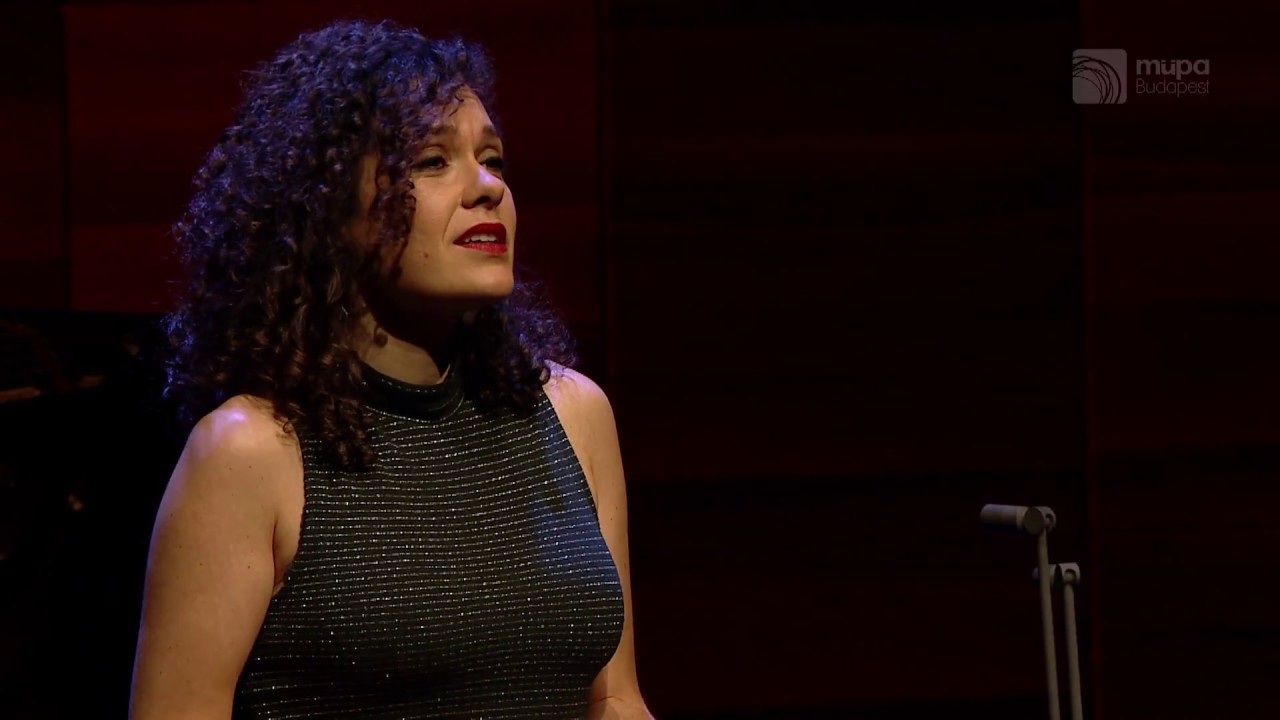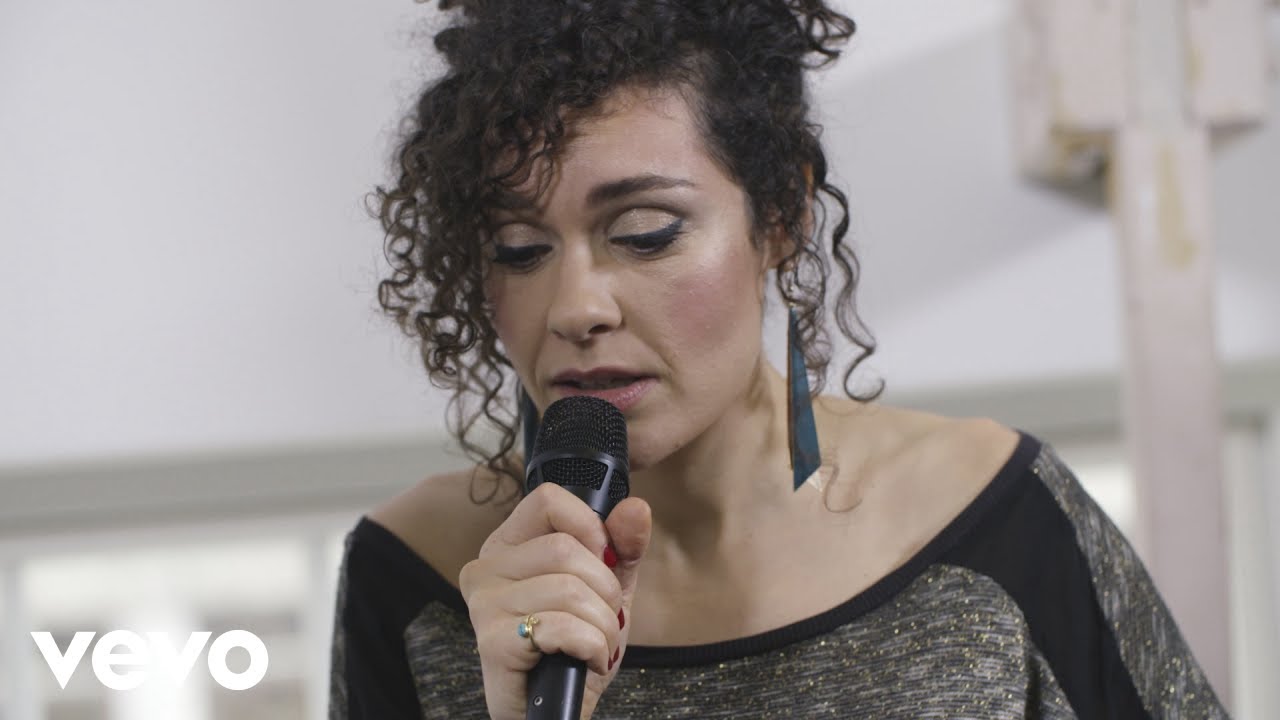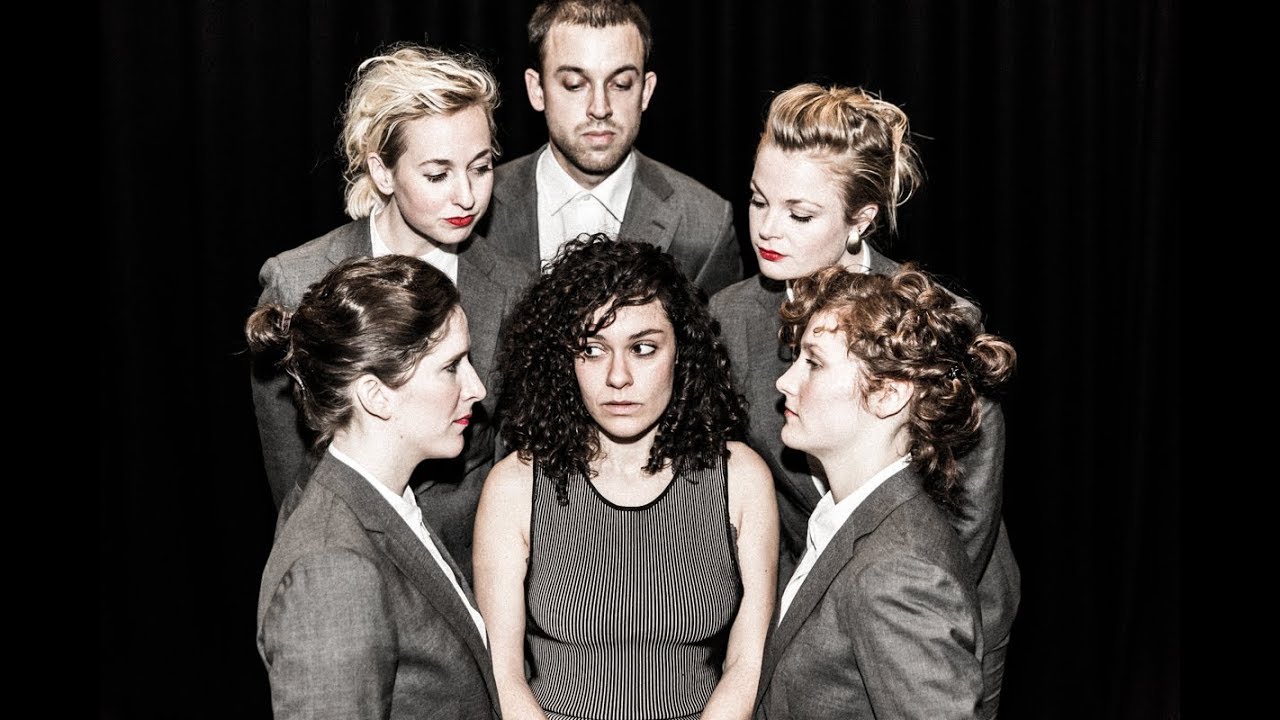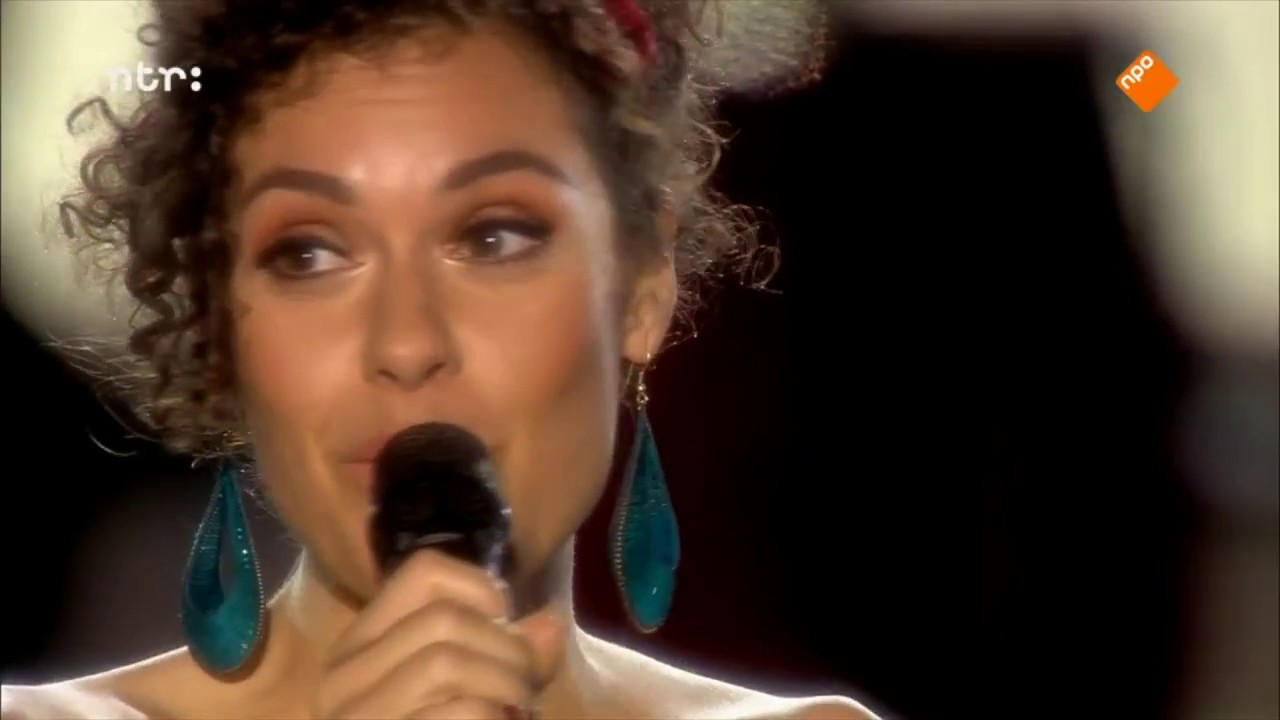Timelessness within (and beyond) the usual timeframes
blog by Nora Fischer – 30 October 2023dossier: TIJD / TIME
Nora Fischer and the Ragazze Quartet in Foodlifecrisis at De Parade
In the series Time, ArtEZ Studium Generale and Mister Motley are investigating the effects of time (pressure) on making. In what ways can we resist, activistly make time, break through what we collectively perpetuate? Regarding the influence of time on artists, we asked vocalist Nora Fischer to write down some reflections on the concept of time in her work. She then wrote this blog especially for Studium Generale.
In the series Time, ArtEZ Studium Generale and Mister Motley are investigating the effects of time (pressure) on making. In what ways can we resist, activistly make time, break through what we collectively perpetuate? Regarding the influence of time on artists, we asked vocalist Nora Fischer to write down some reflections on the concept of time in her work. She then wrote this blog especially for Studium Generale.
Floating between eras
As a singer with a love for classical music but with slightly less love for the stereotypical classical vocal sound, I have always been trapped between multiple centuries. I loved the musical material written down – often hundreds of years ago – in dots and lines, but I also loved the natural and straightforward way in which pop singers of my own time used their voices. I loved how they would do with their voices whatever their intuition told them to: from airy melody lines to twanged belting to soft whispers, and most of all: a beautiful absence of vibrato. I never understood why I wasn't allowed to do those things with my own voice, as I was singing these century-old dots and lines. Wasn't I the creative being who would bring these written-down notes to life in my very own way? But my place as a classical musician was made crystal clear to me in my conservatory days, as I was singing a Debussy song with the word “delicatement” in it. Delicately. I thought: let's half-whisper that word to make it sound delicate. But the comment was loud and clear: “this is Debussy, it's supposed to be legato.” No whispering allowed: it was supposed to sound like something that in my mind looked like spreading peanut butter over a piece of bread. In that moment I understood the meaning of the conservatory: it wants to conserve. What I was learning here – at least in the classical tradition and in those times – was closer to a museum than to the development of my own creativity. Not long after this lesson, I left the institute.
What followed was a long journey of investigating this identity that floats between at least four centuries of music and history. What does it mean to perform music of another era in my own time? Who am I, the performer, between these deceased composers and the living audience? How much historical knowledge am I obliged to obey, and how much freedom am I permitted to take? I was gifted with an easy voice, one that felt happy and comfortable in many different types of music, and I decided to let that voice simply be itself in whatever music I would sing. As I moved from project to project working with classical, pop, jazz and world musicians, as well as with many composers of new music, I didn't ever tell my voice to adapt itself to the style it was performing. I simply stayed with my natural sound, and kept wondering: what does my voice sound like in this context, and in this one, and in this one? It was my best attempt at timelessness, at being the thread connecting these wildly different centuries. I often felt like there was so much music that could speak to so many more people than the usual audiences in the concert halls, if only it would be performed in a less stylized, less time-specific, and instead in a more neutral, timeless way.
I experimented with this both by performing straightforward classical repertoire while refraining from using an overly classical vocal sound, as by shaking up the musical material itself as I did on my album Hush (a collaboration with pop guitarist and singer Marnix Dorrestein). For Hush, we took songs from about 400 years ago, and approached them with the question: if these songs were written today, if this composer would have lived today, what would it sound like? We stripped the songs from everything that made them time-specific: the instrumentation, the historic vocal style, the baroque style of ornamentation, the classical text pronounciation... and all that was left was what is basically in the score: a bassline, a few chords, and a melody. And out of that, we built it up again as if the song were written right now.
Here is an example of a “classical” version of an early music piece,
What followed was a long journey of investigating this identity that floats between at least four centuries of music and history. What does it mean to perform music of another era in my own time? Who am I, the performer, between these deceased composers and the living audience? How much historical knowledge am I obliged to obey, and how much freedom am I permitted to take? I was gifted with an easy voice, one that felt happy and comfortable in many different types of music, and I decided to let that voice simply be itself in whatever music I would sing. As I moved from project to project working with classical, pop, jazz and world musicians, as well as with many composers of new music, I didn't ever tell my voice to adapt itself to the style it was performing. I simply stayed with my natural sound, and kept wondering: what does my voice sound like in this context, and in this one, and in this one? It was my best attempt at timelessness, at being the thread connecting these wildly different centuries. I often felt like there was so much music that could speak to so many more people than the usual audiences in the concert halls, if only it would be performed in a less stylized, less time-specific, and instead in a more neutral, timeless way.
I experimented with this both by performing straightforward classical repertoire while refraining from using an overly classical vocal sound, as by shaking up the musical material itself as I did on my album Hush (a collaboration with pop guitarist and singer Marnix Dorrestein). For Hush, we took songs from about 400 years ago, and approached them with the question: if these songs were written today, if this composer would have lived today, what would it sound like? We stripped the songs from everything that made them time-specific: the instrumentation, the historic vocal style, the baroque style of ornamentation, the classical text pronounciation... and all that was left was what is basically in the score: a bassline, a few chords, and a melody. And out of that, we built it up again as if the song were written right now.
Here is an example of a “classical” version of an early music piece,

Nora Fischer & Mike Fentross (theorbe) perform Claudio Monteverdi, Lamento della ninfa (Live at Müpa Budapest)
while here is an example of the version Marnix and I made from a piece by the same composer (Monteverdi) for the Hush album:

Nora Fischer & Marnix Dorrestein (guitar) perform Claudio Monteverdi, Oblivion Soave at Splendor Amsterdam
Letting things simmer
One of my best friends is a theatre director, and I remember vividly when she once came to me in shock, telling me that she was rehearsing with a few classical musicians, and at 5pm sharp they starting packing up their instruments, while they were in the middle of a scene! In the middle of a sentence even! What was going on here, are they out of their mind? To my own sadness, I had to shrug and tell her this was perfectly normal – regardless of the fact that I totally understood her disbelief. There is something very strange about musicians and their time management. The main problem is that it has grown to be normal to sit on stage and still be reading your music (imagine an actor standing on stage while reading his/her lines from a piece of paper!). I have never entirely understood why it is accepted for musicians – but not for actors – to do this. Yes, sometimes the music is so complex that memorising is almost or entirely impossible, but in many cases this is not at all true. Nevertheless, memorising is generally not trained, and reading on stage has mostly become the norm. The result is that musicians are used to needing only the minimal amount of time for rehearsals, and are not accostumed to keep rehearsing and experimenting once they know how to play the music. It's normal to have one or two rehearsals before you go on stage, even with people you have never met, and with whom you might not even speak properly with before – or after – you share the stage together. This never felt right to me, and whenever I would describe this to my theatre friends, they stared at me with open mouths. For them, it's unthinkable not to go through a thorough and joint artistic process before you enter the stage with anyone. And I felt it myself: whenever I worked with theatre or dance groups, I was intensely happy because of the hours and hours that were spent on things like deep group discussions on the performance theme, playing physical games in the rehearsal space to get tuned into each other energetically, eating lots of food and hanging in pubs around rehearsal times while continuing the discussions, and of course: trying things out endlessly in the rehearsal space so that by the time we got on stage, we were totally one with each other and with the material. Everyone involved felt like they fully owned the entire performance.
Living in a culture that keeps telling us that “time is money”, we have to be extremely careful to protect our timelessness.
Even if you are technically able to perform a musical piece with so little group preparation, it's just like good food: when simmering for a while, it always gets better. When having the luck to have more than one performance of a music programme, I always notice that the music becomes better and better with each performance. It makes sense: it takes time to really get to know it, to grow into it. Once you start playing for an audience, the real understanding of what you are performing starts taking place, which is why most theatre companies will have a number of public try-outs before the official premiere. In music we generally don't have that luxury. And because we got used to not having it, we have almost forgotten how much better we could play if we would make it a top priority.
This time-management problem is one of the reasons I have never enjoyed soloist work as much as smaller scale collaborative work. When performing as a soloist, I would have the same frustrations my friend had described: the precisely timed rehearsals, the sudden emptiness of the hall right after rehearsal time ended, the loneliness of your artistic dreams and desires with the piece that is being performed. Instead, whenever an opportunity arose to step into a joint artistic collaboration with a number of weeks blocked entirely for that project, I jumped on it. And luckily, along the way I have found many musicians – also in the classical world – who were willing to spend weeks workshopping, rehearsing, trying out, memorising, and messing around with yet-to-be-shaped materials. One such project was The Secret Diary of Nora Plain, a project I created together with the Ragazze String Quartet, jazz composer Morris Kliphuis and lyricist Lucky Fonz III. For this project, we collaborated on the lyrics for months, workshopped the music for more than three weeks, and with all the music memorized we were free to work with a stage director to shape the piece into a theatrical performance. You can see an impression of the project here:
This time-management problem is one of the reasons I have never enjoyed soloist work as much as smaller scale collaborative work. When performing as a soloist, I would have the same frustrations my friend had described: the precisely timed rehearsals, the sudden emptiness of the hall right after rehearsal time ended, the loneliness of your artistic dreams and desires with the piece that is being performed. Instead, whenever an opportunity arose to step into a joint artistic collaboration with a number of weeks blocked entirely for that project, I jumped on it. And luckily, along the way I have found many musicians – also in the classical world – who were willing to spend weeks workshopping, rehearsing, trying out, memorising, and messing around with yet-to-be-shaped materials. One such project was The Secret Diary of Nora Plain, a project I created together with the Ragazze String Quartet, jazz composer Morris Kliphuis and lyricist Lucky Fonz III. For this project, we collaborated on the lyrics for months, workshopped the music for more than three weeks, and with all the music memorized we were free to work with a stage director to shape the piece into a theatrical performance. You can see an impression of the project here:

Lucky Fonz III and Morris Kliphuis, The Secret Diary of Nora Plain - Nora Fischer, Ragazze Quartet & Remco Menting
Timelessness
In the end, it's the moments where time doesn't exist that art and creativity can flourish. Someone once told me about their visit to the San People in Tanzania, who have a very different concept of time from us Westerners. One of them told my friend to please remove their watch, because “every time you look at that thing, you do something impolite”. He was so right. Looking at a watch means leaving this undefined moment and all of the unexpected things that might occur in it. And living in a culture that keeps telling us that “time is money”, we have to be extremely careful to protect our timelessness. It's a practice, and it's worth it. It's often in those very moments of wandering around aimlessly, of staring at a tree or ceiling, of experiencing boredom, that ideas are born and creative ideas fall into place. These timeless moments are actually working hours, and since this society loves payed time and disregards unpayed time, I have at times even had to trick myself by taking aimless walks and telling myself I'm being paid for it. Whatever makes me accept it as a necessity! But as I currently find myself spending more time on less things, I've noticed that my artistry has taken a great leap.
One of my upcoming projects is about this too: a new series at Splendor Amsterdam (a musician's collective and performance space I'm part of) called Life In Concert, where I invite a handful of musicians to share not only music, but also their time with me and with each other. Besides the usual music rehearsals, we also come together for a few gatherings with lots of food and intimate personal questions, and take the time to share thoughts and stories, in order to get to know each other on a deeper level before even playing one note together. Some of the thoughts and stories will find their way into the performance through spoken texts and poems. I have no idea yet what will happen on stage, but I'm sure it will have a layer of intimacy to it that can never occur within the usual strict timeframe!
One of my upcoming projects is about this too: a new series at Splendor Amsterdam (a musician's collective and performance space I'm part of) called Life In Concert, where I invite a handful of musicians to share not only music, but also their time with me and with each other. Besides the usual music rehearsals, we also come together for a few gatherings with lots of food and intimate personal questions, and take the time to share thoughts and stories, in order to get to know each other on a deeper level before even playing one note together. Some of the thoughts and stories will find their way into the performance through spoken texts and poems. I have no idea yet what will happen on stage, but I'm sure it will have a layer of intimacy to it that can never occur within the usual strict timeframe!

Nora Fischer & Marnix Dorrestein perform Henry Purcell's 'Hush No More' (from: The Fairy Queen), but in a slightly different version. HUSH @uitmarkt opening 2017
events: